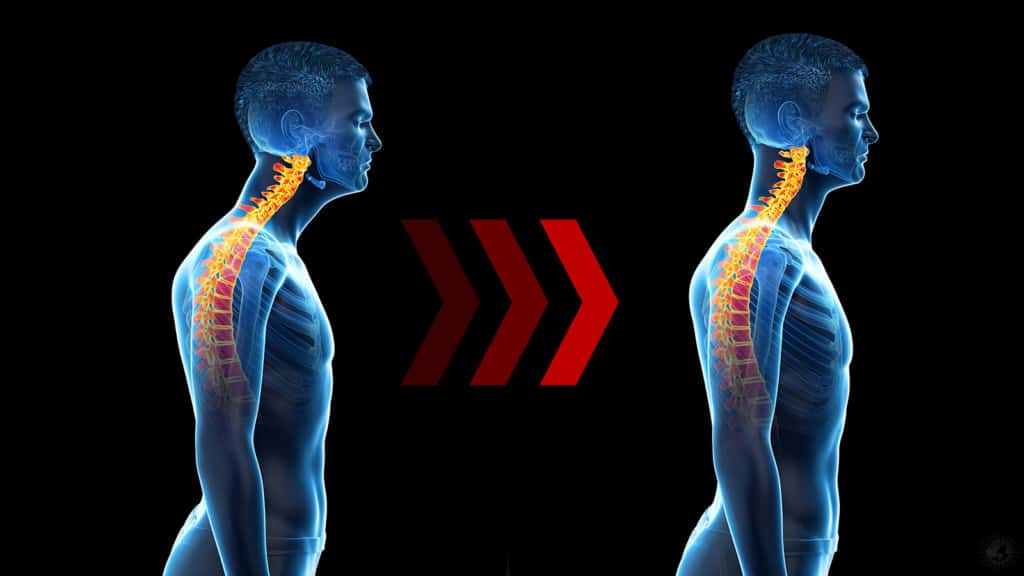You’re on your computer, tablet, or smartphone all day long. You get migraines, neck pangs, and sometimes feel exhausted after a short session. You assume you didn’t sleep right, but it could be that you’re fighting screen fatigue. Did you know that being exhausted from being on a computer is a legitimate medical condition?
It wasn’t until recent years that computer vision syndrome became a problem. With people using computers at home and work along with other smart devices, the folks affected by this medical issue has increased. Did you know that staring at a computer for long periods in specific positions will cause eye strain, visual problems, and even physical pain?
If you think it sounds a bit dramatic, you should know that it’s happening to people across this country every day. The most common symptoms are headaches and eye strain, but there are issues with neck and shoulder pain too.
What causes these problems? Well, many people don’t have their computer and desk at the right height for their bodies. Poor posture and sitting too close or too far away from the screen can cause pain.
Many people have uncorrected vision problems that they try to complement by sitting closer to the screen. However, sitting closer only worsens the strain on the eyes. While work brings burnout issues, other concerns stem from screen fatigue.
Zoom Meetings Increase Computer Vision Syndrome
Recently Zoom meetings have increased in popularity. Online discussions and video calls are replicas of in-person communication, and while it’s convenient, it’s not the best option for your health. When you have a meeting face-to-face, you can easily read body language, facial expressions, and have a sense of how the other person thinks and feels.
While virtual meetings are a good alternative, there is a break in communication with technological pauses and the inability to see someone as well as you can in person. All the non-verbal cues you pick up on when you’re with someone are missed when the meeting is online. Have you participated in these meetings and thought that people look irritable, sleepy, and tired?
Another problem is that people try to do more multitasking. Since the meeting is virtual, they are working on other documents, answering phone calls, and supportive staff questions, and they don’t give the meeting their full attention. All these things will affect your energy level as well as your focus and mood.
Ten Useful Tips on How to Beat Screen Fatigue
It’s evident that computer time in America has increased. Now, it’s time to do something about it. Here are some easy tips that can help you to combat the problem you have with screen fatigue.

1. Practice Good Posture
Your parents and teachers knew what they were talking about when you were a child, and they always reminded you about your posture. Bad posture not only makes you appear sloppy and less confident, but it can also hurt your body.
To fix your posture, raise the screen, and adjust your chair to sit in a good position. If you feel any neck strain or have problems seeing the computer, you need to adjust to correct the issue.
2. Alter your lighting
Is the room that you work in too dark, or is it too bright? Check the brightness on your screen and make sure it’s in the perfect position to prevent strain. It would help if you had it somewhere in the middle to avoid problems from neck pain and eye strain.
Another factor to consider is the natural light of a room. The more natural light you have, the less artificial light you will need. Remember that the lighting of your room makes a big difference.
3. Take Breaks for Your Eye’s Sake
Even if you have fantastic posture and the best lighting possible, you still can’t sit on your computer all day long. Your body and mind need time to rest. Did you know that your eyes need exercise too? After you’ve been on your computer for a couple of hours, take time and go outside.
Try focusing on vivid and colorful things to refocus your eyes and give them a workout. Screen fatigue is a real thing, and it can affect you. Your work lifestyle must be adjusted to combat the fatigue and stress you feel from being on your computer all day long.
4. Alter Your Work-Life Balance
If you notice that you have more neck pain and headaches than average, it might not all be about screen fatigue. Did you know that if you’re working more than 30 hours a week and not engaging with your family, it can cause your body great distress? The average workweek is five days a week, with nine hours each day.
Sadly, American’s work more than any other country in the world. The average person will work around 46 hours each week, which is 499 more hours a year than the French, and 137 more than those in Japan. It’s staggering when you consider that the most significant part of your life revolves around work.
Your neck pain may be from stress, and those migraines may come from just working too much. It would help if you had a healthy work/life balance to avoid stress.
5. Purchase Blue Light Glasses
Your computer screen emits blue light rays that are very damaging to your eyes. If you notice that your vision isn’t what it used to be, can it be related to how much time you spend on the computer? Sadly, something that is necessary for work can cause so much damage.
Many people praise blue light glasses because they block those harmful lights that cause damage. It can help relieve some of the strain and issues associated with computer vision syndrome.
6. Don’t Negate Self-Care
One of the reasons you may feel so exhausted when you’re working on a computer all day is that you have neglected your self-care. It might not be the computer’s fault at all. If you’re not getting enough sleep, don’t have time to engage in the things you love, it will cause you problems like stress. Make time for yourself, even if it’s only 30 minutes each day.
7. Never Demand an Eight Hour Day
Why do Americans believe that you need to work at least eight hours each day? People in the Netherlands only work four days a week, while the people in Denmark have a workweek that is 33 hours a week. There’s no reason that you can’t get the things done that you need to with six hours a day versus eight, or maybe even less.
Other Things to Consider About Too Much Technology
Screen fatigue is a group of disorders caused by the fact that your eyes must continuously refocus, and in the meantime, it causes damage. Millions of people are affected by this condition because of their smartphones and laptops.
The fatigue usually starts when someone has problems with their vision. It’s the first symptom and the most serious. The symptoms are blurry vision and a hard time seeing far away even if you are wearing your corrective lenses. While the problem is not permanent, the strain can build up over time and be harder to recover.
Another problem that people have is double-vision, and it’s never something you want to experience. You often hear about seeing double after head injuries, but it can be caused by eye exhaustion. Your eyes are exhausted when they are always trying to refocus, and the strain can cause them to have times when they are blurry.
Bloodshot eyes are another common problem, and it means that a blood vessel is about to break. Thankfully, taking a screen vacation can help tremendously. However, if this problem happens time and again, it can lead to complications and permanent damage.
Lastly, scrolling through your phone or laptop can make your neck stiff if you hold it in the wrong position. Have you ever had a crick in your neck that doesn’t seem to go away? The muscles tense up, and you can develop “text neck” Being stuck in awkward positions can strain the muscles and even affect your spine.
 Final Thoughts on Avoiding Screen Fatigue
Final Thoughts on Avoiding Screen Fatigue
Being hunched over a computer is no way to spend the day. If you notice that you have constant neck and back strain, you need to watch being locked in weird positions. You should never stare at a computer for more than 20 minutes without a break. If you don’t abide by those rules, you will undoubtedly have pain that reminds you of the much-needed breaks you should take.
Do you notice any of the signs of screen fatigue or computer vision syndrome? The good news is that you don’t have to suffer when there are things that you can do to prevent this problem from occurring or worsening.
The post Doctors Explain Causes and Symptoms of Screen Fatigue (And How to Help It) appeared first on Power of Positivity: Positive Thinking & Attitude.
【Top 10 Malaysia & Singapore Most Beautiful Girls】Have you follow?
